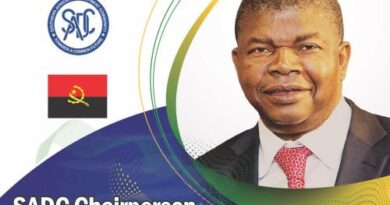US Funding Withdrawal from AfDB Could Undermine Zambia’s Development, CTPD Warns
The Centre for Trade Policy and Development (CTPD) has raised alarm over the United States’ reported intention to withdraw USD 555 million in funding support to the African Development Bank’s (AfDB) concessional arm.
The policy think tank says the decision could significantly impact development efforts across Africa, including in Zambia.
According to Reuters and other major outlets, the United States – one of AfDB’s largest non-regional contributors – had pledged USD 568 million for the 2023–2025 cycle. A withdrawal would introduce uncertainty for ongoing development projects, many of which play a crucial role in Zambia’s economic transformation.
As of November 2024, the AfDB was financing 24 active projects in Zambia valued at over USD 872.3 million. These projects span multiple sectors: transport (33.8%), water supply and sanitation (22.6%), agriculture (19.2%), power (12%), social sectors (6.1%), environment (4.9%), and finance (1.4%). Notable among them is support to the Lobito Corridor, a major infrastructure initiative linking Zambia to regional and global markets.
CTPD warns that a halt in US contributions could stall progress on key infrastructure, rural connectivity, irrigation, electrification, and access to clean water — all of which are cornerstones of Zambia’s 8th National Development Plan (8NDP) and Vision 2030.
“It is important for Zambia and other African governments to reevaluate their development financing strategies,” said Mr. Barnabas Mwale, CTPD’s Trade and Investment Researcher. “Diversifying funding sources and reinforcing domestic resource mobilization is critical to reduce dependency and ensure sustainability.”
CTPD has also echoed sentiments recently expressed by AfDB President Dr. Akinwumi Adesina, urging African nations to prioritize self-reliance in financing their development agendas.
Beyond financing, CTPD is calling on the Zambian government to address inefficiencies in public spending and capitalize on opportunities under the African Continental Free Trade Area (AfCFTA). Mwale stressed the need to support local manufacturers to boost exports and foster inclusive growth.
“Zambia must now strengthen its industrial base to create competitive products that can thrive within the AfCFTA and global markets,” he said.



